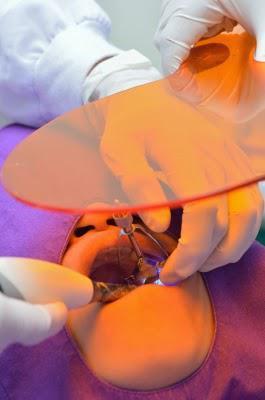
Dental care and oral hygiene are very important for older adults. The oral complications can increase with aging, especially after reaching the age of 50 years. This includes periodontal disease, loss of teeth, plaque and large cavity formation, enamel decaying etc. Often the diseases in the mouth can trigger serious health concerns, including pneumonia (caused by bacterial droplets in the mouth that reach the lungs over the time), diabetes (caused by the emergence of periodontitis that affect the capability of the organs to utilize the insulin to prevent excessive sugar absorption in the blood), etc.
Dental Problems in the Older Adults
Already mentioned above, the elderly can develop several problems in the gums, teeth roots, enamel layers and other parts of the mouth. The following are some specific common oral health problems evident in seniors.
- The thinning of the outer glossy enamel layer may allow the appearance of the yellowish dentin tissue.
- The prolonged use of artificial dentures may result in the loss of sense of taste, and sensory actions.
- Lack of proper dental caring may cause receding of the gum tissue from the tooth enamel. This leads to the action of acid decaying on the roots of the exposed tooth.
- The emergence of gum diseases can result in the loss of tooth.
- Improper denture fitting can cause the fungus attack such as Candida and others into the gum tissues situated underneath.
- Extreme dryness can occur in the mouth due to the use of certain medicines.
The professionals need to consider these problems in older adults and take care of the oral hygiene of the patients, especially those who are under treatment and dependence on the caregivers. The caregiver should be proficient in offering the elderly dental care services to prevent the occurrence of any sort of oral problem.
Dental Caring for Seniors
Some basic dental caring practices can help to gain fine oral health and freshness of breath even during the old age. Following are some important tips on oral care for elderly to maintain a healthy living.
- Brush the teeth everyday in the morning and bedtime. Use a fluoride based toothpaste for proper cleaning and sensation. Use an electric toothbrush if suggested by the dentist.
- To remove plaque and prevent any future formation, conduct flossing once every day.
- Visit a dentist at regular intervals for detailed oral checkup, cleaning and treatment.
- Use a mouthwash with antibacterial ingredients to reduce germ attack on the gum tissues.
- Avoid smoking to prevent gum diseases, teeth yellowing and enamel decay and tooth loss.
- Remove the dentures at the night. Keep the dentures out of your mouth for at least 4 to 5 hours daily. Clean the dentures every day.
When contacting the care-giving agencies, it is necessary to ensure that the caregivers are trained and efficient in catering to the elderly dental care needs. The regular diet must be rich in vitamins D and essential minerals, preferably vegetarian base to maintain strong and problem free oral health.